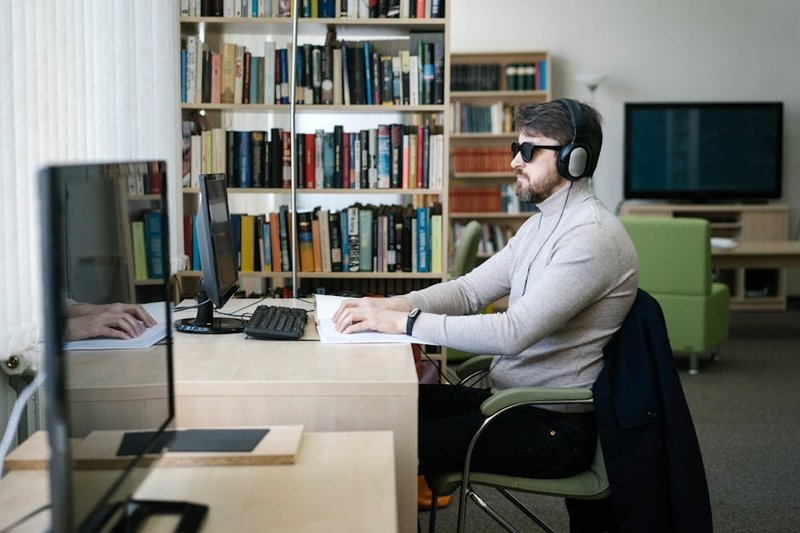I’ve been staring at my computer screen for almost an hour now, trying to process the Television Academy’s AI Summit I attended last weekend. As someone who’s spent fifteen years in production, I should have clear opinions about AI’s role in our industry. Instead, I find myself caught between fascination and fear, excitement and dread.
The summit itself was oddly one-sided. While industry executives and AI developers painted rosy pictures of efficiency and innovation, there was a conspicuous absence of voices from writers, actors, and craftspeople—the very people whose livelihoods stand to be most affected. I left feeling unsettled, my notebook filled with more questions than answers.
But rather than dwelling in that discomfort, I’m challenging myself to find gratitude in this moment of transition. Not toxic positivity that ignores legitimate concerns, but authentic appreciation for what this evolution might teach us.
Grateful for the Wake-Up Call
First, I’m grateful for the uncomfortable awakening this technology provides. For years, many of us operated in comfortable creative bubbles, assuming certain aspects of our work could never be replicated. AI has shattered that illusion, forcing us to articulate what truly makes human creativity special.
The presentations showcasing AI-generated scripts and visual effects were technically impressive but lacked the emotional resonance that comes from lived human experience. This realization has rekindled my appreciation for the nuanced understanding we bring to storytelling—the way personal struggles, joys, and cultural contexts inform our creative choices.

Grateful for New Conversations
I’m finding unexpected gratitude for the deeper conversations emerging across our industry. At a dinner following the summit, I sat with colleagues from different departments hashing out ethical questions that had rarely surfaced before: What makes a story authentic? Who deserves credit for creative work? How do we value human contribution in an increasingly automated world?
These discussions cut through years of superficial networking to reveal shared values and concerns. One cinematographer confessed fears about her specialized lighting techniques becoming algorithmic presets. A writer worried about AI scraping his published work without compensation. But through these vulnerable exchanges, we found solidarity and purpose I hadn’t experienced in industry gatherings before.
Grateful for Rediscovering My “Why”
Perhaps most significantly, this technological revolution has forced me to reconnect with why I entered this field in the first place. It wasn’t for efficiency or technical perfection—it was to connect, to move people, to process my own experiences through storytelling.
The summit’s emphasis on AI as a productivity tool completely missed this dimension. When one presenter showed how AI could generate dozens of script variations in seconds, I felt my stomach tighten. But that reaction taught me something important: the value of my work isn’t in volume or speed, but in the singular, unrepeatable perspective I bring.
I’m grateful for this clarity. In questioning what parts of my creative process could be automated, I’ve identified what cannot be: my lived experience, my particular way of seeing the world, the authenticity of expression that comes from having occupied this specific body and mind.
Grateful for the Opportunity to Advocate
Initially, I felt powerless watching technology reshape my industry from the outside. But I’ve come to appreciate this moment as an opportunity for advocacy and participation. The conspicuous absence of creative voices at the summit highlighted how essential it is for us to join these conversations rather than waiting for invitations.
I’m grateful to live in a time when we can still influence how these tools develop and integrate into our work. Last week, I joined a working group within my guild to develop ethical guidelines for AI use in production. The energy in that room—the sense of agency and collective purpose—was something I hadn’t felt in my professional life for years.
Grateful – Finding Gratitude in the Tension
The most challenging practice has been finding gratitude within the tension itself—the uncomfortable space between resistance and acceptance. I don’t need to choose between rejecting AI entirely or embracing it uncritically. There’s wisdom in holding both the threats and possibilities simultaneously.
I’m grateful for this mental flexibility I’m developing, this capacity to live with uncertainty. It’s making me not just a better creative professional but a more adaptable human being.

My perspective shift hasn’t eliminated concerns about job security, creative ownership, or the corporatization of storytelling. Those worries remain valid. But gratitude provides a steadier foundation from which to address them—one that acknowledges both challenges and possibilities.
The summit’s one-sidedness taught me that no technology dictates its own implementation. We decide how to use these tools, what values guide their development, and what boundaries protect human creativity. For that agency—the chance to participate in shaping this transition rather than merely reacting to it—I am profoundly grateful.
Tomorrow, I’ll dive back into learning about AI capabilities, not from fear but curiosity. I’ll continue advocating for ethical guidelines with my guild. And most importantly, I’ll keep creating work that celebrates what makes us irreplaceably human—our contradictions, our contextual understanding, our capacity for empathy—the very qualities no algorithm can truly replicate.



